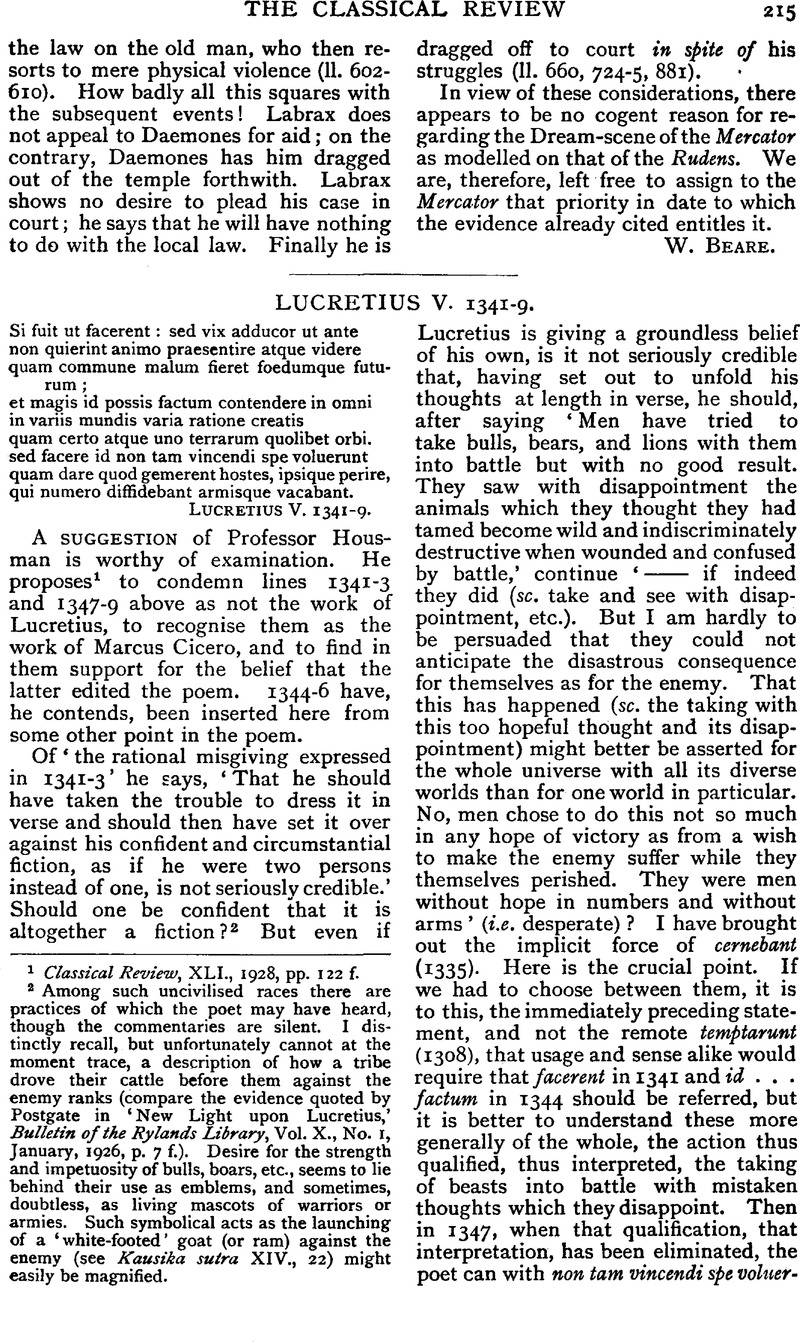No CrossRef data available.

page 215 note 1 Classical Review, XLI., 1928, pp. 122 fGoogle Scholar.
page 215 note 2 Among such uncivilised races there are practices of which the poet may have heard, though the commentaries are silent. I distinctly recall, but unfortunately cannot at the moment trace, a description of how a tribe drove their cattle before them against the enemy ranks (compare the evidence quoted by Postgate, in ‘New Light upon Lucretius,’ Bulletin of the Rylands Library, Vol. X., No. I, January, 1926, p. 7 f.)Google Scholar. Desire for the strength and impetuosity of bulls, boars, etc., seems to lie behind their use as emblems, and sometimes, doubtless, as living mascots of warriors or armies. Such symbolical acts as the launching of a ‘white-footed’ goat (or ram) against the enemy (see Kausika sutra XIV., 22) might easily be magnified.
page 216 note 1 Cf. Epicurus Πρ⋯σ ᾙρ⋯δοτον, § 74 (Usener, pp. 26 and 380; and Bailey, pp. 46 f. and 245).
page 217 note 1 I have not included one, possibly two, instances of the participle vacans as a substantive, meaning ‘void.’